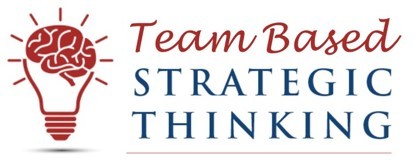Your Business Model Is Broken (Or Soon Will Be!) (#1 Article)
It is a brave senior executive who believes the business model they are successful with today will be the business model they will be successful with in the future. After they recompose themselves from the huge shock of this realisation, most admit they know it to be inherently true.
If you actually think this to be false, you must read on.
For 60 years, the Swiss dominated the world in watch manufacturing. They were first in this industry by far with no one in close second. They had more than 65% of the world watch market and their watches were reputed to be the finest in the world.
Then, something happened: The Swiss watch industry business model was disrupted. Their market share dropped from 65% to less than 10%. What happened? It was the invention of the digital watch!
Fifty thousand of the 62,000 watchmakers lost their jobs. The nation was in catastrophe. They made the most accurate gears in the world. It was irrelevant.
They made the best bearings. Nobody cared. They manufactured the finest mainsprings. Suddenly obsolete. All the advantages they had accrued in the old business model were worthless in the new.
The ironic part of this story is that the digital watch was invented by the Swiss themselves. However, the manufacturers rejected the new invention. The Seiko Quartz-Astron 35SQ was introduced in Tokyo, Japan, on December 25, 1969, and as they say, the rest is history!
It would be easy to assume the Swiss watch crisis that started in 1975 was a result of the quartz revolution (product innovation/technology disruption). However on closer inspection, one commentator’s view is that it was in fact due to the structural unsuitability of the Swiss watch industry to acquire new technologies and to integrate them into the production system. This was compounded by the cultural belief of the superiority of their industry (process innovation and mindset).
Unlike the Swiss, the Japanese were highly capable of mass producing high-quality mechanical watches thanks to an American, Edwards W. Deming.
As a result, their mechanical watches became cheaper while the Swiss ones became ever more expensive. This caused the global market share of Swiss mechanical watches to fall steadily. This is no more than the simple application of supply and demand theory.
An ominous one I see on the horizon is the “FinTech” disruption. Financial technology, or FinTech as it is known, is an industry composed of companies that use new technology and innovation with available resources in order to compete in the marketplace of traditional financial institutions and intermediaries in the delivery of financial services.
Our banking institutions in Australia are conservative by nature. Their ability to respond and adapt to the emergence of the FinTech sector is a major challenge facing them over the coming months and years.
Example of FinTech range from bitcoin and blockchain as payment methods and processes, micro-loans and crowdfunding for financing as well as automatic risk assessment for insurance.
Why would we expect the financial services Industry to be better prepared than the industries that have gone before them?
Typically the new business model is a result of challenging the conventional wisdom and orthodoxies of how the industry operates. From a neuroscience perspective, your current mental model becomes so ingrained with biases and toxic assumptions that you are unable comprehend a new future.
When we are able to see the big picture, the opportunities and threats become much more clear and present. Companies are used to relying on one or two seasoned executives to comprehend the “big picture” view of the organisation.
The above historic example of Swiss watches show us these executives were blinded by their own biases. The only real solution would seem to be to build a systems thinking mindset in your people, so they can continually challenge in a productive and constructive manner the status quo of your business model. The challenge from a thinking skills perspective is to move from a linear mindset to a systemic point of view.
So what’s going to happen with your business? Are you going the way of the Swiss watch or are you able to get your team to see outside of the old way of doing things? Everybody needs an eye on the big picture and I can help you cultivate a team who anticipates the next move, not reacts once it’s too late.

